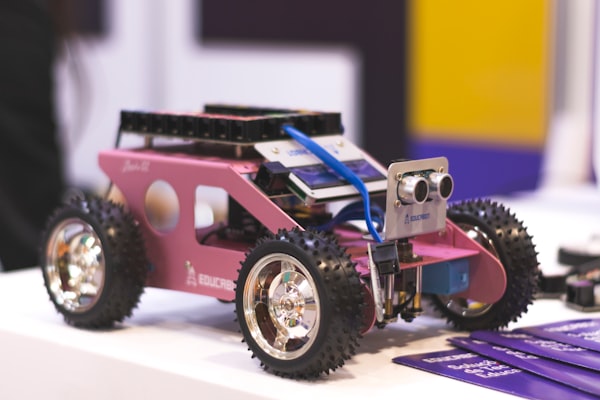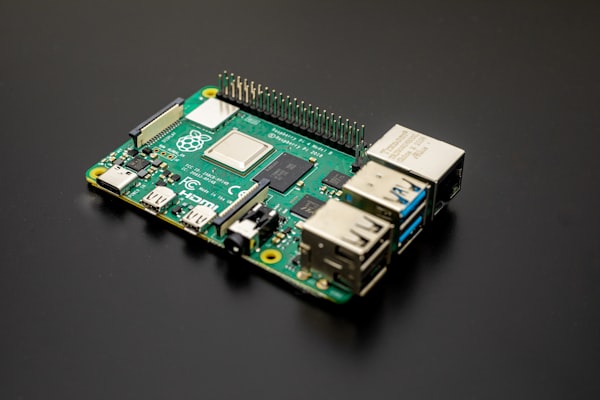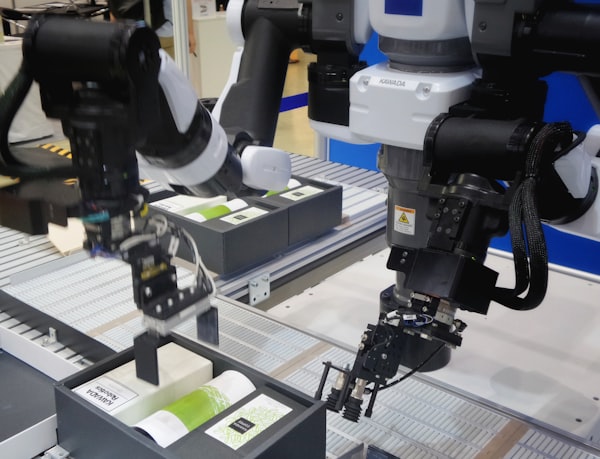How Robotics Companies in India are Shaping the Future of Automation
Table of Content
The field of robotics and automation has been rapidly evolving, revolutionising industries across the globe. In recent years, India has emerged as a prominent hub for robotics companies, playing a crucial role in shaping the future of automation. This article explores the advancements, innovations, and contributions of robotics companies in India and how they drive transformative change in various sectors.
The Rise of Robotics Agencies in India
India's robotics industry has experienced significant growth in recent years, fueled by technological advancements, favourable government initiatives, and a pool of skilled engineers. Robotics firms in India are at the forefront of developing cutting-edge robotic technologies, automation solutions, and artificial intelligence applications. Their contributions reshape manufacturing, healthcare, agriculture, logistics, and more industries.
Transforming Manufacturing and Industry 4.0
Automation Solutions:
Robotics firms in India are driving the adoption of automation solutions in the manufacturing sector. They are developing industrial robots, collaborative robots (cobots), and automated guided vehicles (AGVs) that optimise production processes, increase efficiency, and reduce labour costs. These robots can perform repetitive tasks precisely, improving quality control and overall productivity.
Smart Factory Solutions:
India's robotics companies are pioneering the concept of smart factories and Industry 4.0. They integrate robotics technology, the Internet of Things (IoT), and artificial intelligence (AI) technologies to create intelligent manufacturing systems. These systems enable real-time data collection, analysis, and decision-making, facilitating predictive maintenance, inventory management, and supply chain optimisation.
Revolutionising Healthcare
Surgical Robotics:
Indian robotics companies are making significant strides in the field of surgical robotics. They are developing robotic-assisted surgical systems that provide greater precision, control, and minimally invasive procedures. These robotic systems enable surgeons to perform complex surgeries with enhanced agility, reducing patient trauma, faster recovery times and improving surgical outcomes.
Rehabilitation and Assistive Robotics
Robotics firms in India are also focusing on developing rehabilitation and assistive robotics to improve the quality of life for individuals with disabilities. These robotic devices aid in physical therapy, assist with mobility, and enhance the independence of individuals with limited mobility. Such advancements can transform the healthcare landscape and improve patient care.
Empowering Agriculture
India's agriculture sector is benefiting from the innovations of robotics companies, addressing challenges such as labour shortage and increasing productivity.
Autonomous Farming:
Robotics companies are developing autonomous agricultural robots to perform tasks like seeding, spraying, harvesting, and monitoring crop health. These robots leverage AI and computer vision technologies to make informed decisions and optimise farming operations. Autonomous farming robots improve efficiency, reduce resource wastage, and enable precision agriculture.
Farm Management Systems:
Indian robotics companies also provide farm management systems integrating data from sensors, drones, and robotic devices to offer real-time monitoring and analysis. These systems help farmers make data-driven decisions, optimise resource allocation, and improve crop yields. With the help of robotics, Indian farmers can enhance productivity, reduce costs, and sustainably manage their land.
Enabling Logistics and Warehouse Automation
Robotic Warehousing:
Robotic warehouse automation companies have revolutionised warehouse operations, significantly enhancing efficiency and productivity. With the integration of advanced robotic systems, warehouses can optimise inventory management, reduce operational costs, and improve order fulfilment speed. Warehouse robots can autonomously navigate the warehouse, locate items, and efficiently retrieve and transport them to designated areas.
They collaborate with human workers, complementing their skills and increasing overall efficiency. Robotic warehousing solutions streamline processes, minimise errors, improve safety, and create a more organised and streamlined warehouse environment. With the ability to handle high volumes and repetitive tasks, these robots empower warehouse personnel to focus on more complex and strategic operations, ultimately leading to improved customer satisfaction and a competitive edge in the market.
Last-Mile Delivery:
Indian robotics companies are also exploring innovative solutions for last-mile delivery. Autonomous delivery robots and drones are being developed to address the challenges of the final leg of the supply chain. These robots can navigate through congested urban areas, ensuring timely and efficient delivery of goods.
Conclusion
Robotics companies in India are playing a pivotal role in shaping the future of automation across industries. Their advancements and innovations in manufacturing, healthcare, agriculture, logistics, and more are transforming processes, improving efficiency, and enabling sustainable growth.
With a strong foundation of engineering talent, technological expertise, and a growing ecosystem, India's robotics industry is poised to drive continued innovation and contribute significantly to the global automation landscape.











